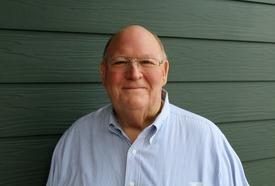We are pleased to announce that as of March 4, 2025, an updated Rich Text Editor has been introduced in the MyFitnessPal Community. To learn more about the changes, please click here. We look forward to sharing this new feature with you!
Intuitive Eating

misterhub
Posts: 6,815 Member
Recent article in The Atlantic. Interesting read. Caveat emptor. YMMV.
https://www.theatlantic.com/health/archive/2019/02/intuitive-eating/583357/
https://www.theatlantic.com/health/archive/2019/02/intuitive-eating/583357/
1
Replies
-
Before I respond to the article, Greg, I might suggest that (either now, or in the future) that when you post article links, that you pull out what you think is interesting, or controversial, or worth discussing. It's a pretty long article, and its message can be challenging to extract.
Just a suggestion.0 -
I had read about "Intuitive Eating" at one point along the way. Back in the days of the old WW GOAD board, there was a group of us who followed "Intuitive Maintenance" after reaching goal. Indeed, I follow an "intuitive" approach, in that I don't track and count calories, and am currently in weight-loss mode.
This article doesn't really reflect the principles of "Intuitive Eating" as outlined in the "10 principles" they link to. One of the principles is to pay attention to your hunger/fullness/satisfaction when eating.
Instead, this article seems to highlight the idea that weight is not a useful thing to care about, but instead we should care more about how we "feel." In so many ways, in my mind, this reflects our current "anything goes" social contract and (at some times) hyper-vigilant political correctness. We can't criticize anything, and now (this article seems to suggest) we shouldn't care about weight either.
Personally, I would argue that develop a sense of self-control is critically important to getting along in the world. There are simply some things that we shouldn't do. If we're overweight, I don't think we should simply give up and not care about how we eat. I do agree that there are some really maladaptive behaviors associated with dieting, but things don't have to be that way.
I guess this article got under my skin a bit. Sorry if I have offended anyone (he says, slipping back into PC mode!).1 -
I participated on the intuitive maintenance thread back in the day. Honestly I always thought of myself as having "memorized" the program and the portions rather than it really becoming intuitive. Nothing truly intuitive or automatic about it in that sense.
I also subscribe to the idea that "self-control" is more about managing ones environment rather than "staring down the devil" with a "just say no" idealism. When tested it turned out that kids and adults do much better by changing the argument or visualizing something else rather than getting a mind grip. When we exercise some planning and changing our environment we may do better.0 -
That article was too much for me to digest as I opened it and started reading. I was not around when a few Goadies were perhaps following the intuitive program. This term intuitive seems to be contradictory to my thought pattern regarding weight loss. To me either something is or it isn't correct and not something I personally believe is the way it's suppose to be. In other words I can't just think that I could rely on my own mind without instruction or some sort of structure like tracking or keeping up with kcals.
If the above wording doesn't make any sense it's entirely possible as I don't know anything about intuitive dieting 🤯1 -
I am not sure folks were following a particular program per se. I think that several were not journaling or counting points at the time, myself included. I believe that most of the folks were also eating primarily Simply Filling Foods or CORE foods which are similar to many of the "free" foods of today. As part of that many folks were listening to their bodies for the "just right" filling of satisfaction and not full or over full. In my case I don't have much of satisfaction meter so I do better eating amounts from habit. Also in my case not counting points works much better for maintenance than losing weight and I didn't stop counting for about a year after reaching a reasonable goal (except when away in foreign lands).0
-
That article was too much for me to digest as I opened it and started reading. I was not around when a few Goadies were perhaps following the intuitive program. This term intuitive seems to be contradictory to my thought pattern regarding weight loss. To me either something is or it isn't correct and not something I personally believe is the way it's suppose to be. In other words I can't just think that I could rely on my own mind without instruction or some sort of structure like tracking or keeping up with kcals.
If the above wording doesn't make any sense it's entirely possible as I don't know anything about intuitive dieting 🤯
@imastar2
I was lost as well. I agree with you, I definitely needed more structure to be successful at loosing weight.
0 -
I agree that the tenets as explained are a bit removed from "intuitive" in my book. They are very much like the tenets of the old "CORE" program in WW and also the simply filling technique or SFT. I guess the one obvious difference was that folks counted points for items that weren't on the CORE or SFT list.
Some of the tenets make some sense to me.
#1 Reject the diet mentality in the sense of looking at food as virtue or sin (the old "good food" "bad food" talk. I too down play this as it isn't a moral choice and we aren't morally depraved for eating a slice of pizza.
#2 Honor Hunger. Very difficult for me as I am not hungry by nature, and it is difficult to use cues to eat the right portions because of that. A good thought though. With me it is more about so-called "hedonic hunger" where I want it if I see it (apple fritter for example) and not because I am truly physically hungry. I liked the old idea of true hunger where eating broccoli or perhaps brussels sprouts might help.
#5 Respect fullness. Similar to #2. I know when I am over full or stuffed but not so good in recognizing "just right".
#7 Honor feelings (instead of rewarding feelings with food). I am ok with this and compared to some others not really so much of an emotional eater per se.
#9 Exercise. I am glad the author got away from the old idea of traditional military style stuff and talks more about activity. Honestly my body doesn't know if I am spinning circles on a gym bike or toodling to the store outdoors to get groceries. Same thing with walking or gardening. I much prefer to talk of being active.1 -
This article is timely as I've been meaning to make a post that touches on/is related to some of the ideas contained here. Still plan to do that.
I read the entire article. I found it overly voluminous without really saying much. On the touchy-feely/pragmatic scale, I would say I tend to lean just slightly touchy/feely. My initial reaction is the article skews intuitive eating waaaaaay too much to the touchy/feely. My pragmatic side kept searching for information on how one (without paying a dietician/nutritional consultant) would begin to implement intuitive eating. I didn't find the info. While I also agree with some of the 10 Tenets, the list is missing the most critical one, and the one that should be Step 1. That is:
1) Learn how calories work and how much food/how many calories a person your size should be consuming. Develop an understanding of where this number comes from (e.g.TDEE.)
I get that the folks in this article don't want people to calorie count, but I believe, for most people, the absence of the general knowledge of their caloric needs and the impact of a calorie surplus/deficit will keep them from achieving the type of intuitive eating that might change disordered eating. Don't count calories, but understand the consequences (not just impact on weight) of eating too few or too many.
Also, there's little mention of learning to pay attention to how various foods/classes of foods make you feel physically. I think this is another critical element of learning to eat intuitively. But that's a whole other post . . .
My two cents. Hope it makes sense.1 -
steve0mania wrote: »Before I respond to the article, Greg, I might suggest that (either now, or in the future) that when you post article links, that you pull out what you think is interesting, or controversial, or worth discussing. It's a pretty long article, and its message can be challenging to extract.
Just a suggestion.
I totally agree, and this is not to single you out Greg. I rarely bother to read an article that's linked. I must say though that I do appreciate that you commented on it. A link on here, facebook, or anywhere else, without an explanation from the poster, is really annoying. Just my two cents.0 -
On a side note (not directly related to the article since I didn't read it, but related to intuitive eating), last night as dinner, which I was enjoying immensely (best meal I've had since I've been back on program, and it was super low point, bonus!), I sighed! I actually SIGHED! I told my husband, "That sigh is what's supposed to tell me when I've had enough. I rarely notice it. And no, I'm not leaving the rest of my meal! But I love that I actually noticed it!" Oh, to always notice that sigh, and to stop eating and be able to control my weight without counting! Maybe next year
 0
0 -
My goal is post things related to health, food, and nutrition, which are NOT the daily threads in a hope to create conversation, which this article did - as well as possibly get new people to participate.
In the future, I will try to summarize, in a few words, what is included in the link. Although, I am never going to do an executive summary. If this is the standard, then I expect others to do the same.
1 -
@misterhub -- thanks for posting this.1
This discussion has been closed.






